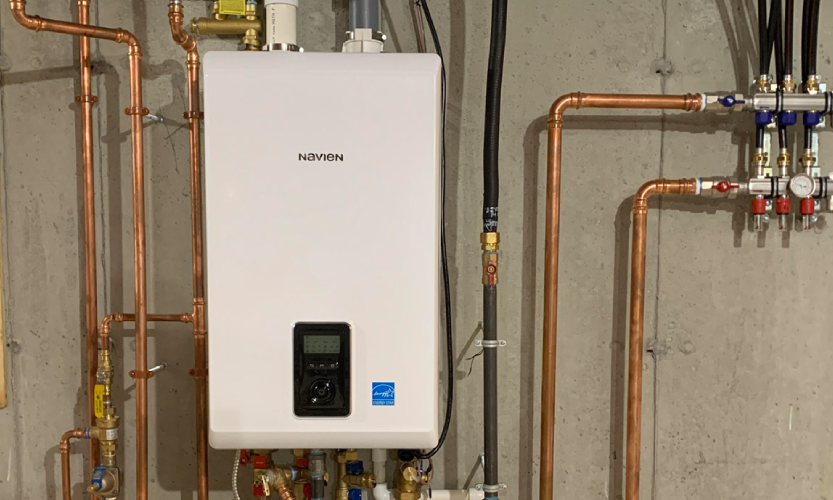Tankless Water Heater Repair vs. Replacement: Your Smart Budget Guide
Your tankless water heater just stopped working, and you're staring at it wondering: "Should I repair this thing or replace it entirely?" Don't panic! This decision doesn't have to drain your bank account or leave you taking cold showers for weeks.Making the right choice between tankless water heater repair and replacement can save you hundreds—or even thousands—of dollars.
The key is understanding when each option makes the most financial sense for your specific situation.Let's dive into the factors that will help you make this crucial decision with confidence!

When Tankless Water Heater Repair Makes Perfect Sense
Repair isn't always the cheaper option, but it can be your best bet under the right circumstances. Here's when fixing your current unit will keep more money in your pocket:
Your Unit Is Still Young
If your tankless water heater is less than 10 years old, repair is usually your smartest move! These units are built to last 15-20 years, so you've got plenty of life left to justify the repair costs.
The Problem Is Minor
Some issues are quick fixes that won't break the bank:
- Clogged filters or vents
- Faulty sensors
- Minor electrical connections
- Scale buildup (common in hard water areas)
These repairs typically cost between $150-$500, making them budget-friendly solutions!
You've Maintained It Well
Regular maintenance extends your unit's lifespan dramatically. If you've been keeping up with annual cleanings and inspections, tankless water heater repair would be an ideal option for you.
When Replacement Is Your Money-Saving Hero
Sometimes spending more upfront actually saves you money in the long run. Here are the telltale signs that replacement is your best investment:
Age Is Catching Up
Is your unit over 12-15 years old? It's time to start shopping for a replacement! Older units become repair magnets, and you'll find yourself calling technicians more frequently.
Repair Costs Are Climbing
Here's a golden rule: if repair costs exceed 50% of a new unit's price, choose replacement every time! You'll get better efficiency, reliability, and warranty protection.
Efficiency Has Dropped
Older tankless units lose efficiency over time. If your energy bills have been creeping up, a new high-efficiency model could pay for itself through energy savings!
Frequent Breakdowns
Are you on a first-name basis with your repair technician? Multiple repairs within a short timeframe signal it's replacement time. Stop throwing good money after bad!
The Real Cost Breakdown You Need to Know
Let's talk numbers so you can make an informed decision:
Typical Repair Costs
- Minor repairs: $150-$500
- Major component replacement: $500-$1,200
- Emergency service calls: Add $100-$200
Replacement Investment
- Basic tankless unit: $1,500-$3,000
- Professional installation: $1,000-$2,500
- Total investment: $2,500-$5,500
Remember, new units come with warranties that protect your investment for years to come!
Smart Questions to Ask Before You Decide
Don't make this decision in a vacuum! Ask yourself these budget-focused questions:How often have you needed repairs recently? If it's more than once in the past two years, replacement might be your smartest financial move.What's your long-term housing plan? Staying put for 10+ years? Invest in replacement. Moving soon? Repair might make more sense.Are there rebates available? Many utility companies offer rebates for high-efficiency tankless water heaters. These incentives can make replacement surprisingly affordable!
Maximizing Your Investment Either Way
If You Choose Repair
- Get multiple quotes from licensed HVAC technicians
- Ask about warranties on repair work
- Schedule preventive maintenance to avoid future issues
- Consider if multiple small repairs indicate bigger problems
If You Choose Replacement
- Research energy-efficient models for long-term savings
- Get quotes from several contractors
- Look into utility rebates and tax credits
- Choose proper sizing to maximize efficiency
Your Next Steps to Smart Savings
Ready to make your decision? Here's your action plan:Step 1: Get a professional diagnosis. A qualified technician can assess your unit's condition and provide repair estimates.Step 2: Calculate the numbers. Compare repair costs to replacement costs, factoring in your unit's age and efficiency.Step 3: Think long-term. Consider your housing plans, budget, and how much reliability matters to you.Step 4: Get multiple quotes regardless of your choice. Competition helps you get the best deal!The bottom line? There's no universal right answer, but there's definitely a right answer for YOUR situation and budget. Trust the numbers, consider your circumstances, and don't be afraid to invest in your home's future when it makes financial sense.Your wallet (and your morning showers) will thank you for making an informed decision!
